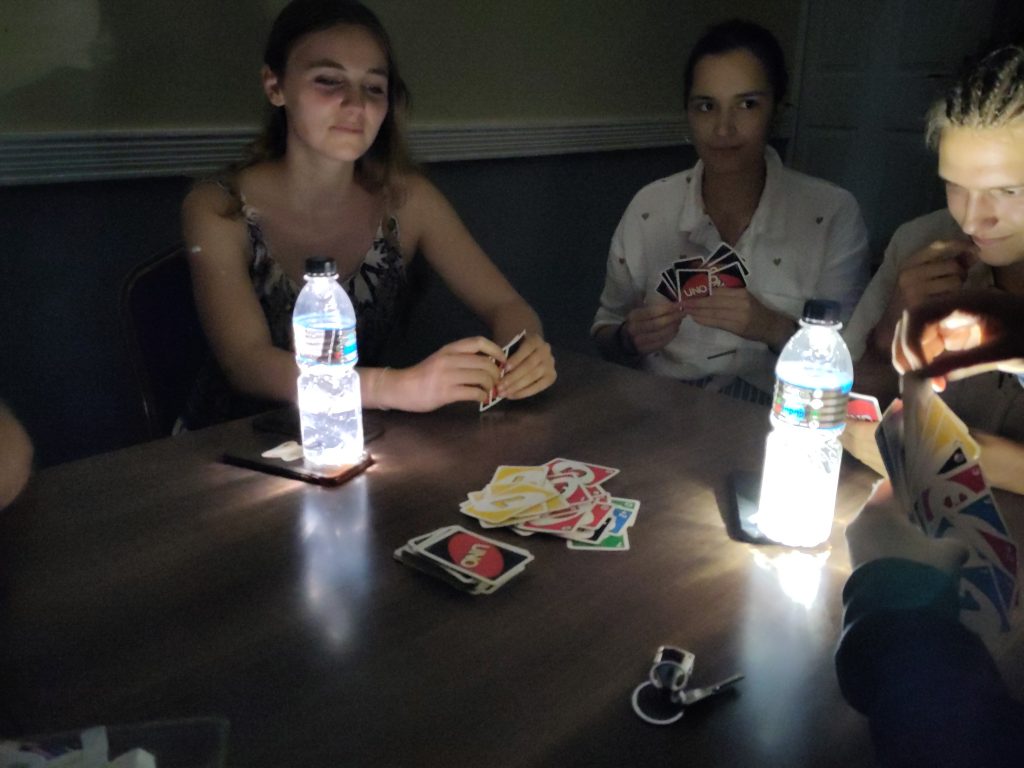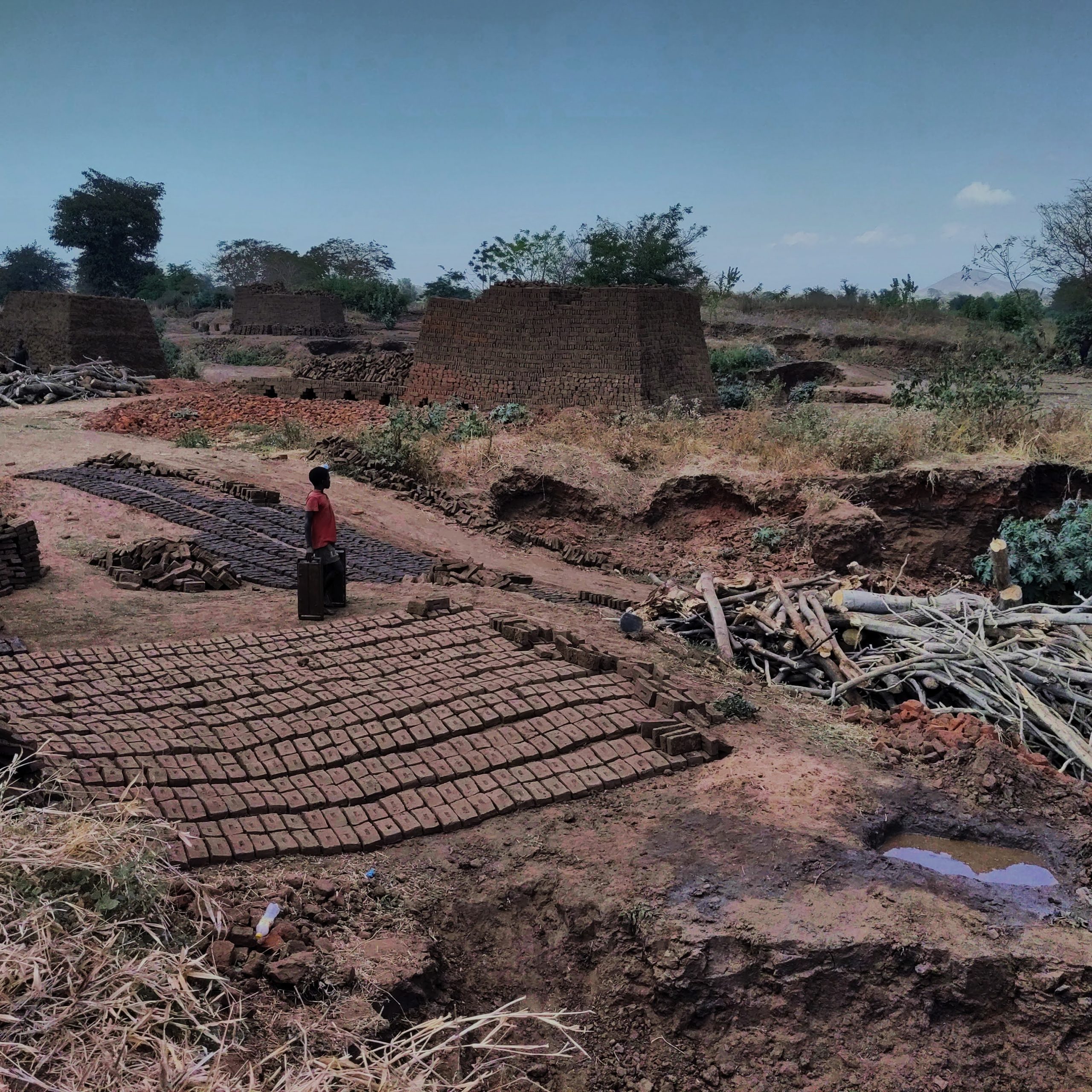We only planned to visit the cultural village of Kungoni today, but after Henry arrived quite late, we changed plans and made and interesting stop in between…
Originally we wanted to use the school bus of the BGA to travel to Kungoni but as the bus hasn’t arrived at the school even after a few ours after our planned starting time, Henry had an idea. We previously informed ourselves about the making of clay bricks, which is why he wanted to show us a near by clay mine. The big dig site was very impressing. With low 25 °C and the dust blowing into our faces, Henry explained to us how these clay mines work.
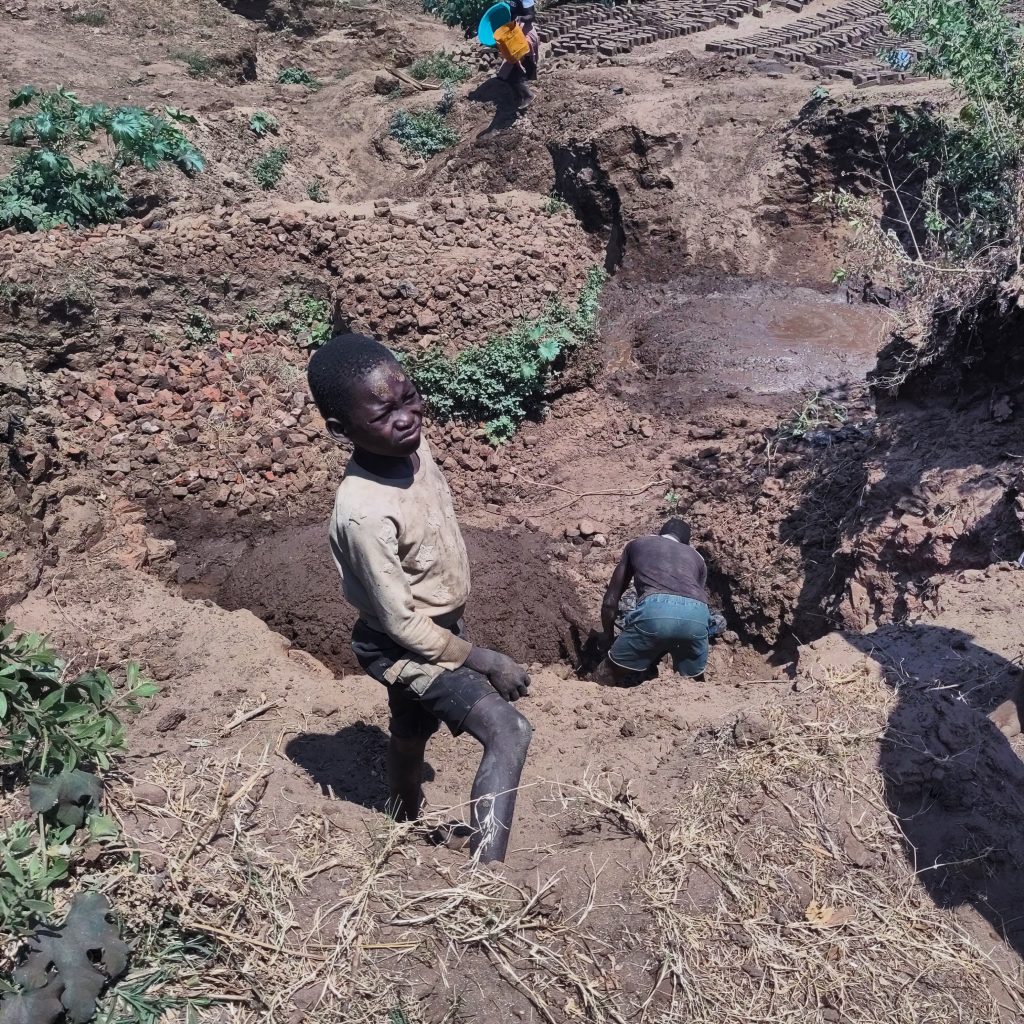
The ones who aren’t employed on a very low per diem basis lease a part of land to dig it up. The dirt is then mixed with water and put into forms afterwards. The resulting bricks will then be laid into the sun to dry before being stacked on top of each other to function as a oven. In the bottom of those ovens are holes where the firewood is put in to burn the bricks. This is one of the reasons why this type of brick production isn’t very ecological and a heavy burden on the local nature.
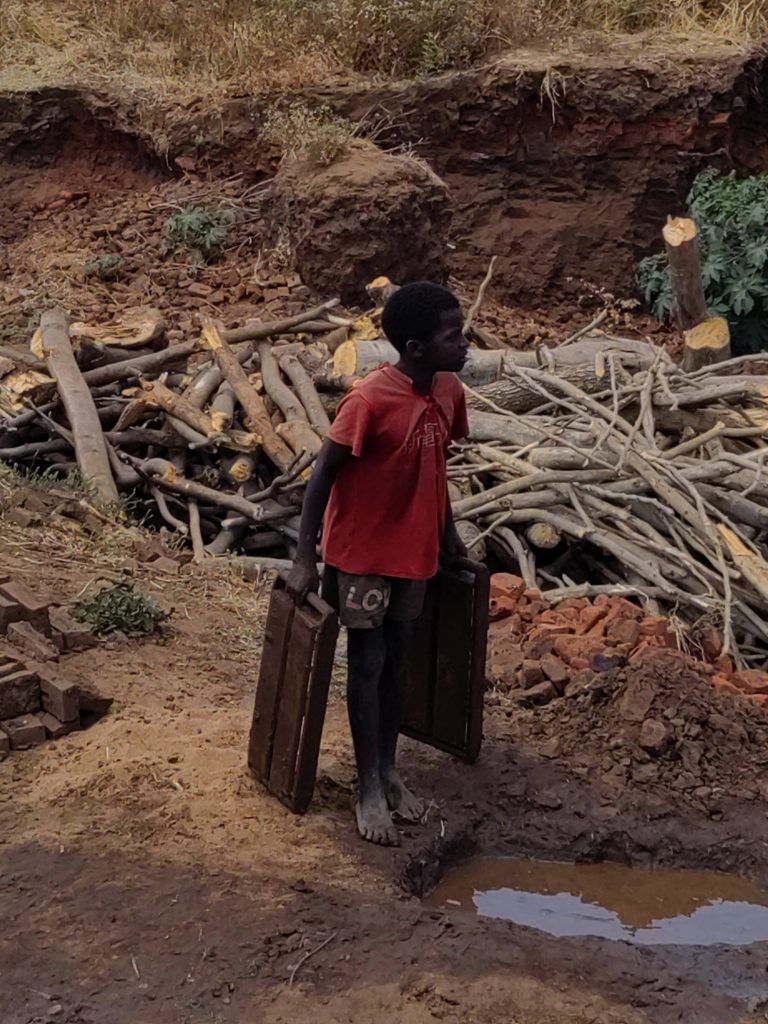
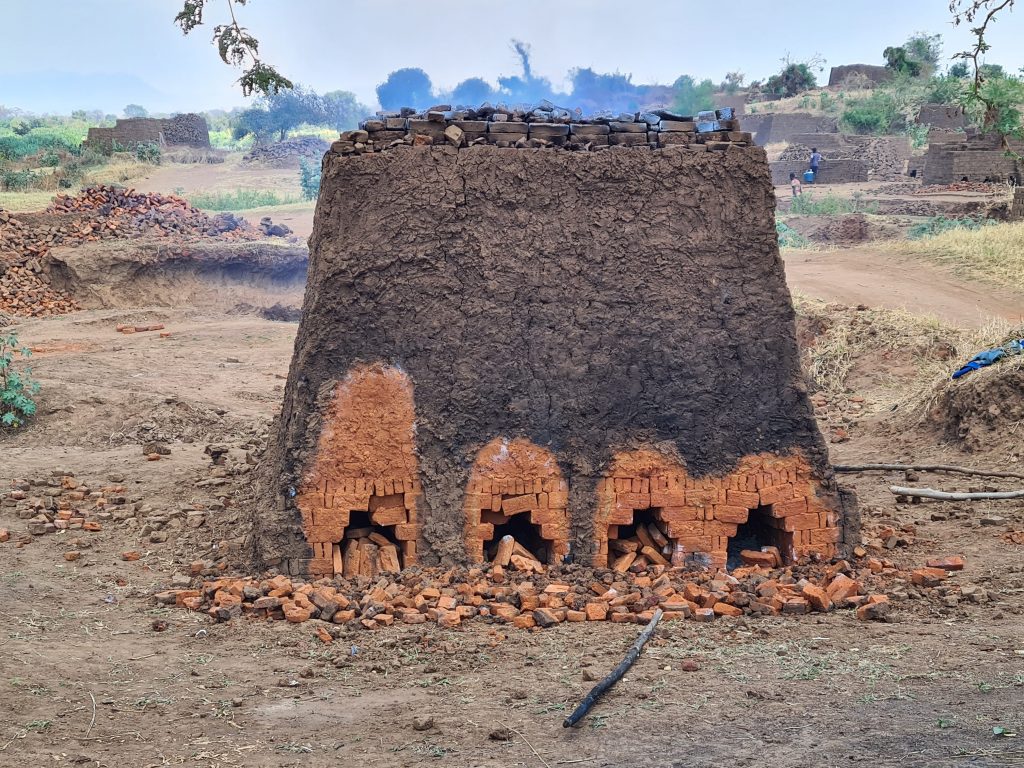
In those clay mines we also saw children, some not older than 10 years. Even though child labor is prohibited in Malawi, this law isn’t particularly well enforced. This is especially true in such clay factories where the children are often payed on a per diem basis which makes tracking their employment even more difficult for law-enforcement.
A single worker can produce between 5,000 and 8,000 bricks each week. For a single house with a footprint of 20 m² you need around 40,000 bricks, Henry translated for us. This corresponds to a working time of 8 weeks. 1000 bricks can be sold for around 15€ to 17€ (15,000MKW to 17,000MKW), even cheaper for wholesalers.
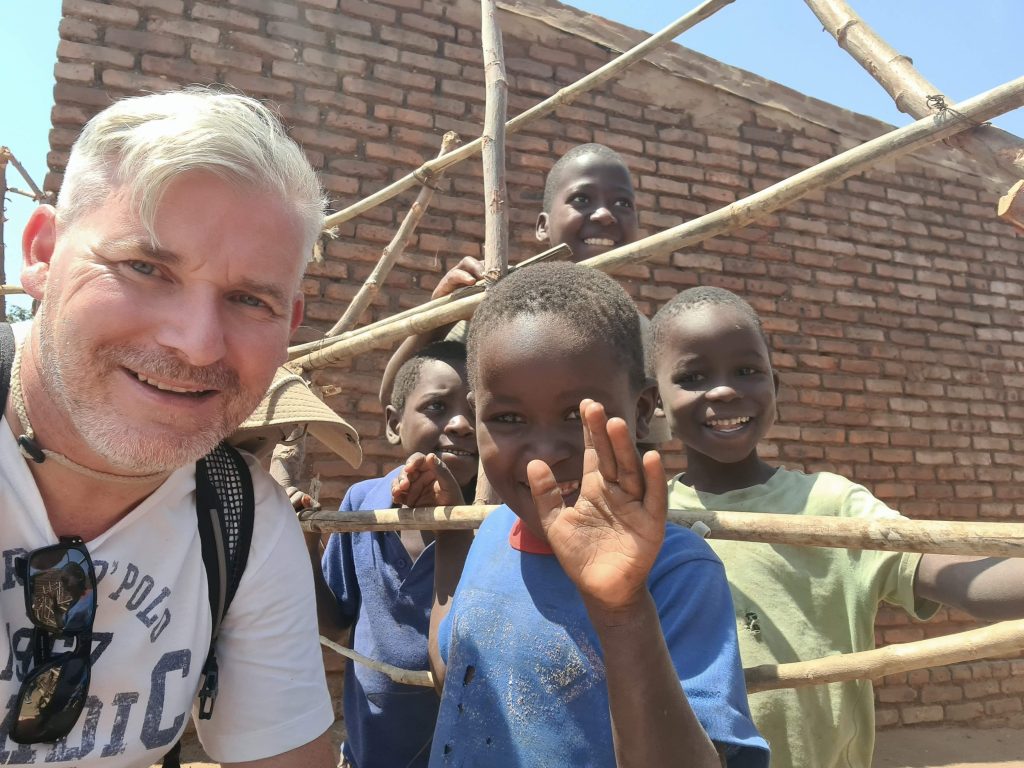
After we gathered a small crowd of people round us and had taken some pictures we rode back to the Beautiful Gate Academy from where we could now start with the bus to Kungoni. We’ve taken the bus due to the high fuel prices because it runs on Diesel which is way cheaper than petrol.
In Kungoni we learned many things about the Malawian culture. An example would be different dances as well as masks which play an important role in their tradition and are sometimes even passed on only in secret to their next of kin. There are also many different rituals for starting into a new part of your life (like adulthood), where head shaving plays an important role as well.
A small film was also made about our trip to Kungoni.
In the evening we wanted to visit our exchange students at home. Justus, Shafi, Matthew and myself traveled together to an orphanage where Matthew and Shafi live. The large area, which was kindly shown to us by the principal, is fully funded by donors which mainly come from the USA and has “everything one can imagine”. There is a large field for growing crops like maize, tomatoes, melons as well as aubergines, a place to play soccer and a computer cabinet.
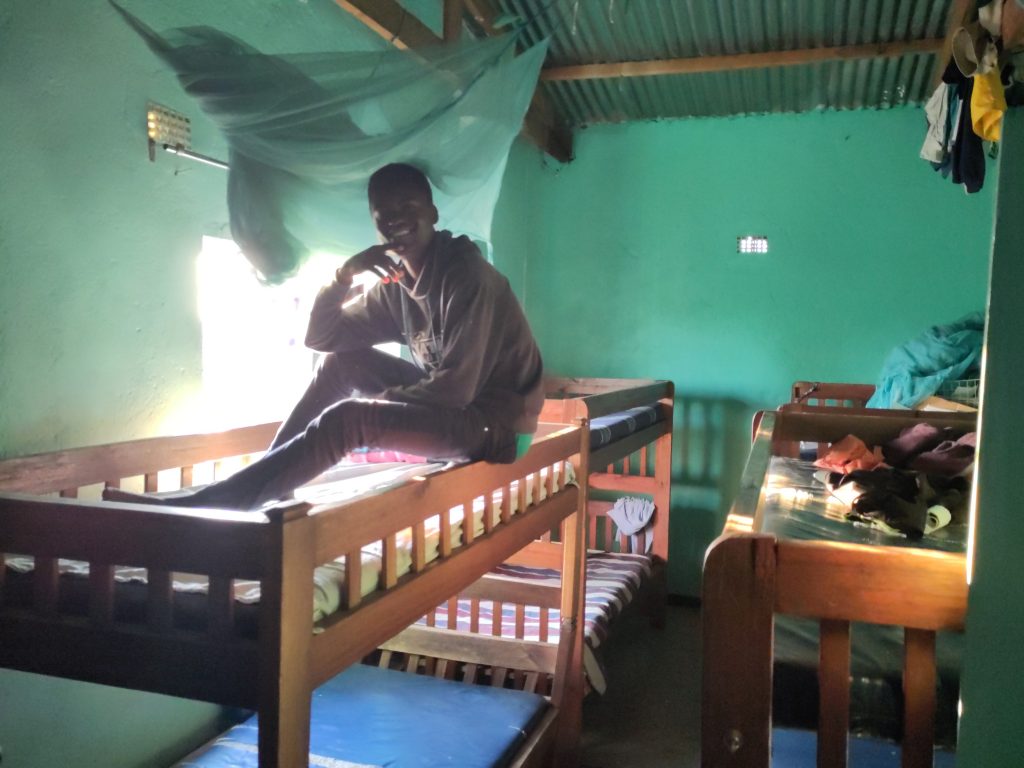
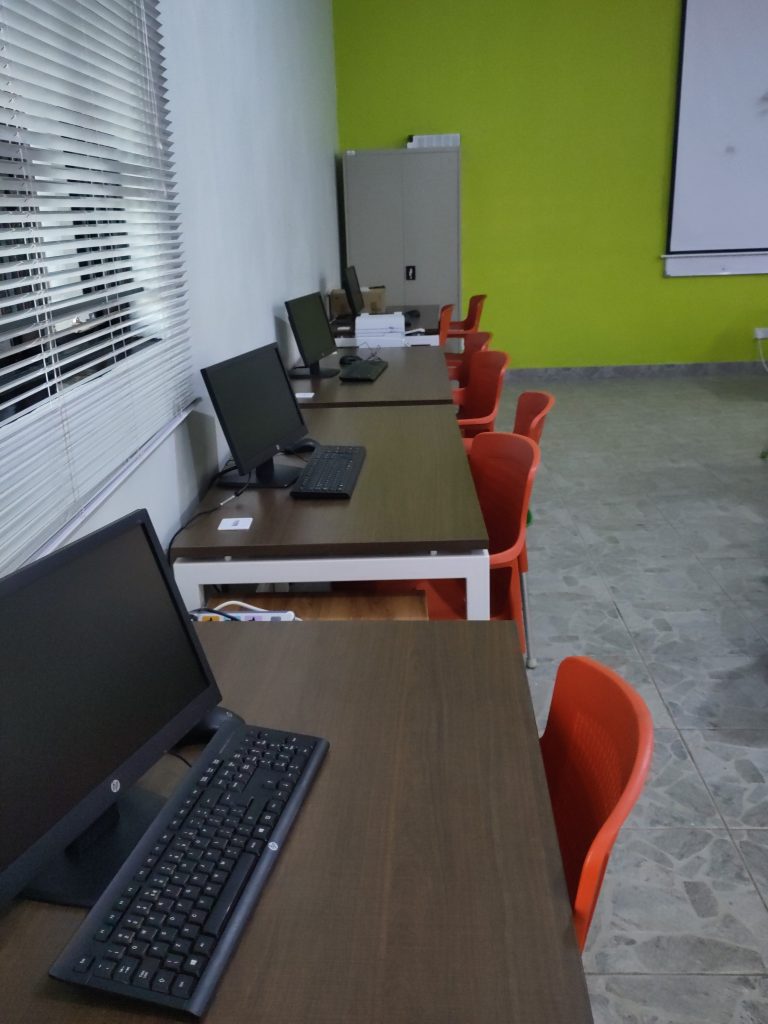
Besides that the organization hosts a primary school as well as as kindergarten and multiple living houses. Each house has a “mama” which should not only get the children/young adults to keep everything clean but acts as a confidential contact as well.
On the way back we stopped by Matthews mother and his siblings. Justus and myself were welcomed very kindly in the small house and got instantly invited to a toast, egg and milk with sugar. But as we needed to get back before darkness, there wasn’t enough time get to know each other. We – very spontaneously – visited Shafi’s aunt on the way back too which didn’t fit into our time planning anymore.
We ended this day some great card games like Skat, UNO and The mind – partially without lights due to a power outage.
